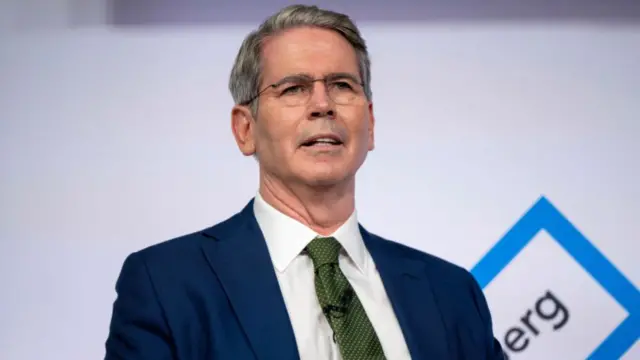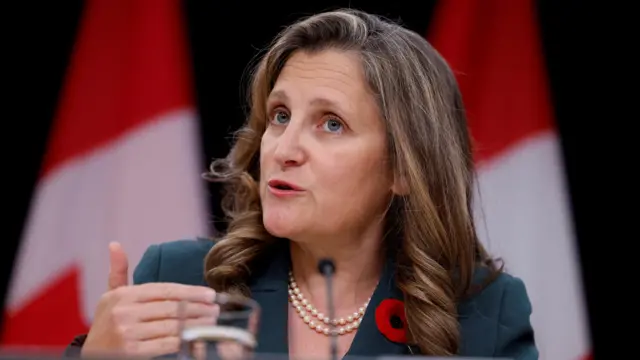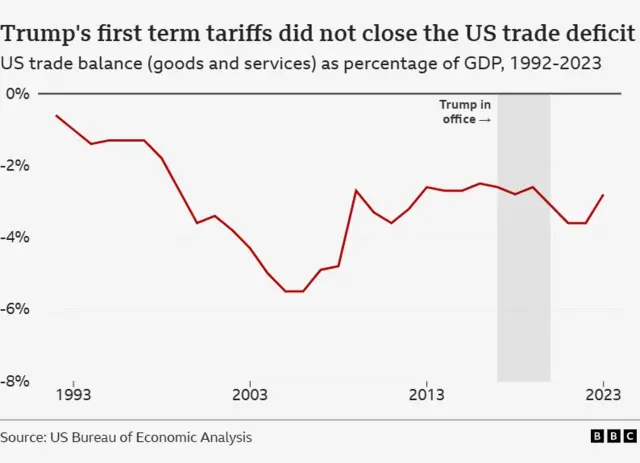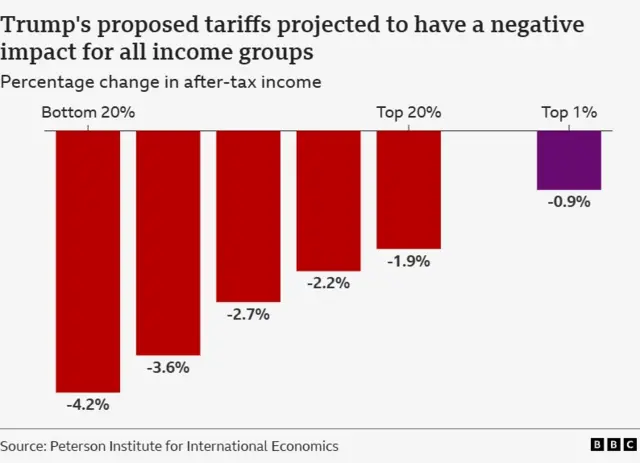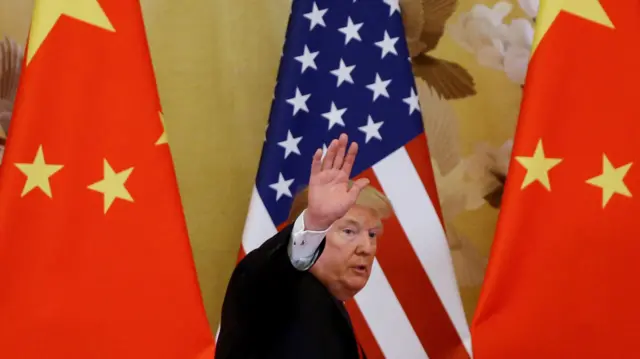Trump follows through on a campaign promisepublished at 20:59 Greenwich Mean Time 26 November
Caitlin Wilson
US live editor
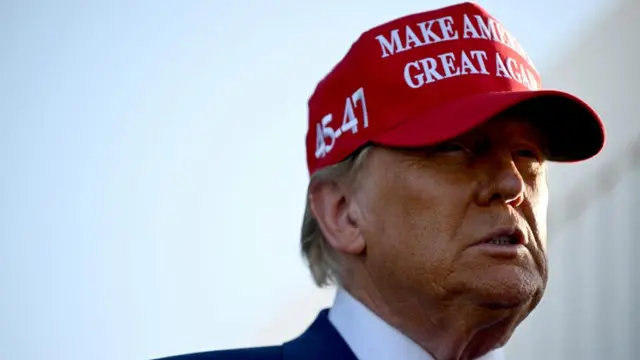 Image source, Reuters
Image source, ReutersLinkUS President-elect Donald Trump campaigned on the proposal that he would impose tariffs on certain goods imported to the United States from abroad - and now he is outlining how he will follow through on those plans.
Trump has announced that, once he takes office in January, he will introduce 25% tariffs on goods entering the US from Canada and Mexico, and will also increase existing tariffs on China by 10%, citing frustration over drugs and illegal migrants crossing the US border.
Tariffs are a form of domestic tax which are placed on goods as they enter the country, depending on how much the product costs.
But who ultimately ends up paying the price for tariffs?
Economic studies of the impact of tariffs, , externalwhich Trump imposed in his first term of office between 2017 and 2020, suggest most of the economic burden was ultimately borne by US consumers.
Mexico, Canada and China have all expressed their concern over Trump's plans.
We will have to wait and see what the ultimate outcome from this announcement is for the US and international economy, as Trump does not take office until January. For now, we are closing our live coverage. Thank you for joining us.


